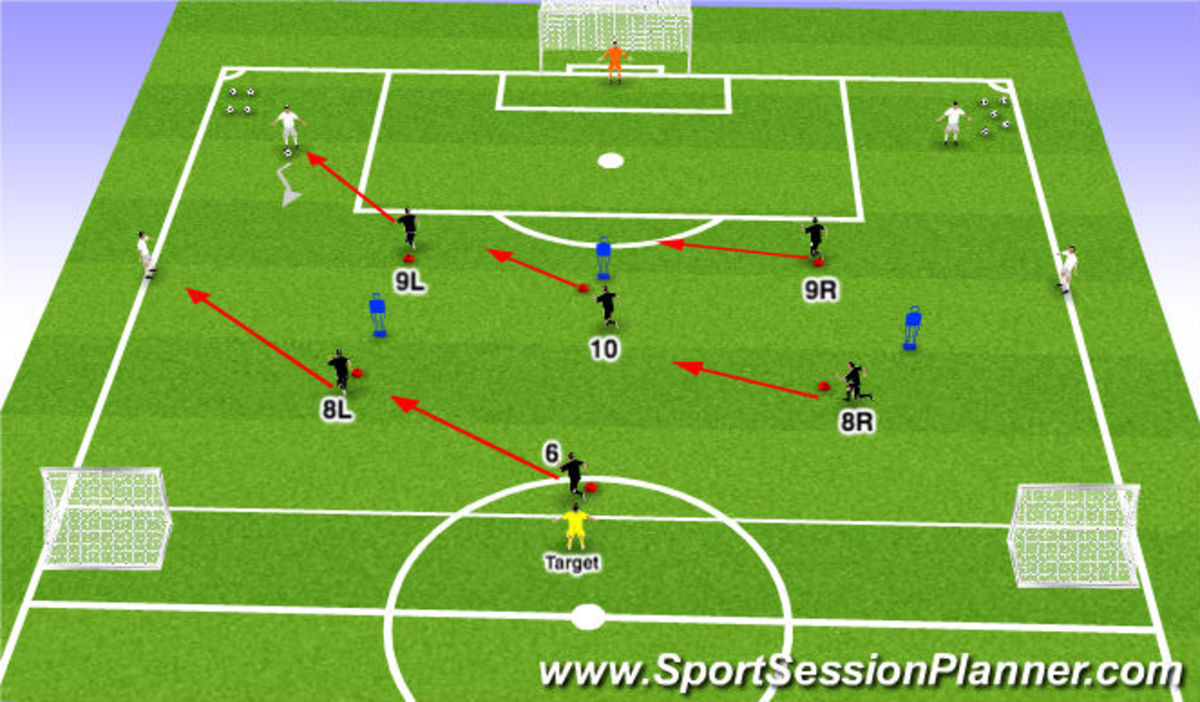
Okay, here’s an extensive season-by-season overview of the UEFA Champions League (and its predecessor, the European Cup), aiming for approximately 1200 words.
A Chronicle of Kings: The UEFA Champions League Season-by-Season Overview
The UEFA Champions League, football’s most prestigious club competition, is a glittering tapestry woven with tales of triumph, heartbreak, tactical innovation, and legendary players. From its humble beginnings as the European Champion Clubs’ Cup in 1955 to the global spectacle it is today, the tournament has consistently delivered unparalleled drama and showcased the pinnacle of club football. This season-by-season overview charts its remarkable evolution, highlighting the dynasties, the underdogs, and the moments that have etched themselves into sporting history.
The Dawn of European Dominance: The European Cup (1955-1992)
The 1950s: Real Madrid’s Reign (1955-1960)
The inaugural 1955-56 season kicked off with Paris hosting the final, where Real Madrid, spearheaded by Alfredo Di Stéfano, defeated Reims 4-3. This was the genesis of an unprecedented dynasty. Real Madrid would go on to win the first five editions of the tournament (1956, 1957, 1958, 1959, 1960), establishing themselves as the undisputed kings of Europe. Their final victory in 1960, an iconic 7-3 demolition of Eintracht Frankfurt at Hampden Park, is still considered one of the greatest finals ever, featuring a masterclass from Di Stéfano and Ferenc Puskás. This era set the benchmark for European club football.
The 1960s: New Challengers Emerge (1961-1970)
Real Madrid’s stranglehold was finally broken by Benfica, who, led by the legendary Eusébio, claimed back-to-back titles in 1961 and 1962. Italy’s AC Milan (1963) and Inter Milan (1964, 1965) then rose to prominence, showcasing tactical discipline and defensive solidity. The latter half of the decade saw England’s first triumph, with Manchester United winning in 1968, a poignant victory following the Munich air disaster a decade earlier, featuring the brilliance of George Best and Bobby Charlton. Before that, Celtic’s "Lisbon Lions" made history in 1967 as the first British club to lift the trophy, playing an attacking, free-flowing style of football. This decade proved that European supremacy was not exclusive to one nation.
The 1970s: Total Football and Bayern’s Era (1971-1980)
The 1970s belonged to two iconic clubs and their revolutionary styles. Ajax, with Johan Cruyff as their orchestrator, won three consecutive titles (1971, 1972, 1973), popularizing "Total Football" – a fluid system where players constantly interchanged positions. Immediately following them, Bayern Munich, powered by Franz Beckenbauer and Gerd Müller, emulated the feat with three consecutive wins (1974, 1975, 1976), establishing German football’s might. The decade concluded with the rise of English football, as Liverpool (1977, 1978) and Nottingham Forest (1979, 1980), under the charismatic Brian Clough, claimed four consecutive titles for England, signaling a shift in power.
The 1980s: English Dominance and Heysel’s Shadow (1981-1990)
The early 1980s saw English clubs continue their supremacy, with Aston Villa (1982) and Liverpool (1981, 1984) adding to the tally. However, the tragic Heysel Stadium disaster in 1985, which resulted in the deaths of 39 fans before the final between Liverpool and Juventus, cast a dark shadow over the competition. English clubs were subsequently banned from European competitions for five years (Liverpool for six), significantly altering the landscape. This period saw more varied winners: Steaua București (1986) became the first Eastern European champions, while Porto (1987) surprised many. The decade ended with the re-emergence of AC Milan under Arrigo Sacchi (1989, 1990), introducing a high-pressing, zonal marking system that would influence football for decades, featuring the Dutch trio of Marco van Basten, Ruud Gullit, and Frank Rijkaard.
The Champions League Era: Rebranding and Global Expansion (1992-Present)
The 1990s: Rebirth and New Formats (1991-2000)
The 1991-92 season was the last under the European Cup format, won by Barcelona’s "Dream Team" under Johan Cruyff. The 1992-93 season marked the official rebranding to the UEFA Champions League, introducing a group stage followed by knockout rounds, dramatically increasing the number of matches and commercial appeal. Marseille won the inaugural UCL title, though their victory was later tainted by a match-fixing scandal. This decade saw a mix of winners: AC Milan (1994) delivered a tactical masterclass against Barcelona, while Ajax (1995) showcased a young, vibrant team. Juventus (1996) and Borussia Dortmund (1997) claimed their first titles in the new format. Real Madrid finally ended their 32-year wait for "La Séptima" in 1998, ushering in a new era of dominance. The decade concluded with Manchester United’s dramatic Treble-winning campaign in 1999, securing the trophy with two injury-time goals against Bayern Munich.
The Early 2000s: Galácticos and Underdogs (2001-2010)
The turn of the millennium was dominated by Real Madrid’s "Galácticos" era, who clinched three titles in five years (2000, 2002, 2004), including Zinedine Zidane’s iconic volley in the 2002 final. Bayern Munich (2001) added another trophy, while unexpected winners like José Mourinho’s Porto (2004) and Liverpool’s "Miracle of Istanbul" (2005) against AC Milan captivated audiences. Barcelona, with Ronaldinho at their peak, won in 2006, signaling their return to the elite. The latter half of the decade saw intense rivalry between English and Spanish clubs. The "Big Four" of the Premier League consistently reached the latter stages, culminating in an all-English final between Manchester United and Chelsea in 2008, won by United. Barcelona, under Pep Guardiola, began their era of tiki-taka dominance, winning in 2009 and 2011, with Lionel Messi ascending to global superstardom. Inter Milan, again under Mourinho, secured a historic Treble in 2010, denying Guardiola’s Barcelona a third consecutive final.
The 2010s: Messi vs. Ronaldo and Spanish Hegemony (2011-2020)
This decade was largely defined by the extraordinary individual rivalry between Lionel Messi and Cristiano Ronaldo, and the dominance of their respective clubs. Barcelona, with Messi as their talisman, added titles in 2011 and 2015, showcasing arguably the finest club team of the modern era. However, Real Madrid, fueled by Ronaldo’s insatiable goalscoring, achieved an unprecedented feat, winning four titles in five years (2014, 2016, 2017, 2018). This included a historic "three-peat" under Zinedine Zidane as manager, a testament to their resilience and big-game mentality. Bayern Munich (2013) also re-established themselves as a force, completing a Treble. Liverpool, under Jürgen Klopp, reached consecutive finals, winning in 2019, marking their return to European elite. The decade concluded with the COVID-19 pandemic forcing the 2020 knockout stages into a unique single-leg format in Lisbon, where Bayern Munich completed a perfect season, winning every game en route to their sixth title.
The Early 2020s: New Contenders and Evolving Tactics (2021-Present)
The post-pandemic era has seen a fascinating blend of established powerhouses and new challengers. Chelsea (2021) surprised many by overcoming Manchester City in an all-English final, showcasing defensive solidity and tactical shrewdness. Real Madrid (2022), against all odds and with a series of dramatic comebacks, once again defied expectations to win their record-extending 14th title, reaffirming their status as the competition’s most successful club. Manchester City (2023) finally achieved their long-awaited triumph, completing a historic Treble under Pep Guardiola, cementing their place among the elite. The current landscape features clubs with immense financial backing like Paris Saint-Germain and Manchester City vying for the ultimate prize, alongside traditional giants like Real Madrid, Bayern Munich, and Liverpool, all adapting to evolving tactical trends, from high-pressing to fluid formations.
Conclusion: A Legacy Unrivaled
From the black-and-white images of Di Stéfano’s Real Madrid to the vibrant, global spectacle of today’s Champions League, the competition has remained the pinnacle of European club football. It has witnessed the birth of dynasties, the rise of tactical revolutions, the emergence of generational talents, and countless moments of sheer, unadulterated drama. Each season adds a new chapter to its rich history, promising more unforgettable nights, more heroic performances, and the eternal quest for continental glory. The UEFA Champions League continues to be the ultimate stage where legends are made and dreams are realized, season after captivating season.



